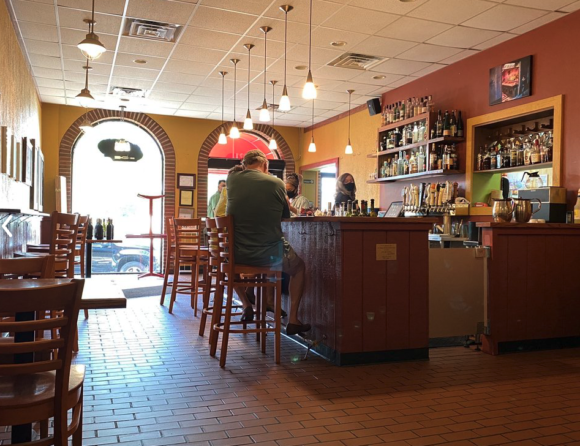A trial court judge in Lansing, Michigan handed a victory to insurers in what may be the nation’s first final ruling on the question of whether a property insurer is liable for financial damages caused by a coronavirus closure order.
Judge Joyce Draganchuk of Michigan’s 30th Circuit Court ruled verbally on July 1 that some tangible alteration to a property is required to trigger coverage. What’s more, a virus exclusion in the property insurance policy would have barred coverage even if the claimants had alleged the virus did cause physical damage, the judge said.
The American Property and Casualty Insurance Association said the court’s decision in Gavrilides Management Company et al. vs. Michigan Insurance Co. is believed to be the first “dispositive motion ruling” in a case seeking business interruption coverage for COVID-19 losses.
“A one-two punch,” the Hurwitz & Fine law firm, headquartered in Buffalo, New York, said in a blog post. “All in all, a big win for the insurance industry.”
While Draganchuk’s ruling interprets Michigan law, Hurwitz & Fine, which was not involved in this case, said the firm believes her interpretation “is consistent with the approach of the majority of states.”
Soup Spoon Cafe
Michigan Insurance, a subsidiary of Donegal Group Inc., denied a $650,000 business interruption claims by chef Nick Gavrilides, owner of the Soup Spoon cafe in Lansing and The Bistro in nearby Williamston. The plaintiffs argued that coverage was due under the civil authority provision of the policy and that a virus exclusion in the policy was void because it was ambiguous.

Secrest Wardle
Draganchuk granted the insurer’s motion to dismiss the lawsuit during a teleconference and asked the defense attorney on the case, Henry Emrich of Secrest Wardle in Grand Rapids, to provide a written order.
Draganchuk rejected the central argument made by plaintiff’s attorney Matthew Heos of the Nichols law firm: that the government order that restricted business to dine-in only amounts to a physical loss because the order effectively blocks public entry to the property.
“That argument is simply nonsense,” she said.
The judge repeated the terms of the policy, and noted that the complaint states that the virus was never even on the property.
“There has to be something that physically alters the integrity of the property,” she said. “There has to be some tangible, i.e. physical, damage to the property.”
The virtual Zoom court session can be viewed in this video; Draganchuk’s comments dismissing the lawsuit can be found at time marker 23:13.
Defense attorneys for the insurance industry have been arguing for months that no coverage is owed under most commercial property insurance policies for business income losses caused by COVID-19 closure orders. Draganchuk recited one of their main points during her oral ruling — that the virus harms people, not property.
Up until the Michigan decision, only one other U.S. judge had ruled the issue of business-interruption losses caused by COVID-19 issue. In Social Life Magazine v. Sentinel Ins. Co., U.S. District Judge Valerie Caproni for the Southern District of New York denied a preliminary injunction requested by a magazine publisher to force its insurers to pay for financial losses caused by a coronavirus closure order.
“It damages lungs. It doesn’t damage printing presses,” the judge reportedly said.
That ruling did not dispose of the case because Caproni found only that under U.S. law, the magazine was unlikely to prevail under New York state law.
But Hurwitz & Fine said “strong language” in early rulings on the physical damage issue bodes well for the insurance industry.
Top Photo of Soup Spoon Cafe courtesy of Yelp.
Was this article valuable?
Here are more articles you may enjoy.



 Portugal Deadly Floods Force Evacuations, Collapse Main Highway
Portugal Deadly Floods Force Evacuations, Collapse Main Highway  Trump’s EPA Rollbacks Will Reverberate for ‘Decades’
Trump’s EPA Rollbacks Will Reverberate for ‘Decades’  Florida Engineers: Winds Under 110 mph Simply Do Not Damage Concrete Tiles
Florida Engineers: Winds Under 110 mph Simply Do Not Damage Concrete Tiles  ‘Structural Shift’ Occurring in California Surplus Lines
‘Structural Shift’ Occurring in California Surplus Lines 

